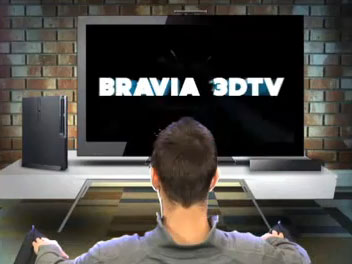Late this week Sony announced plans to stage a special PlayStation-themed event on the 20th of February in New York, in which many experts are predicting the Japanese console giant to lead the push towards next-generation, ultra-high definition home entertainment with a PlayStation 4 (PS4) that supports 4K video output.
 |
| Sony may launch 4K-ready PS4 at 20 Feb PlayStation event |
Rumour has it that Sony is keen to come up with a way of solving the problems posed by a lack of native 4K content that is putting off consumers from buying its hi-tech Ultra HD televisions. While other TV manufacturers, including LG, Samsung and Sharp are all pushing their own monster 4K TVs, they all seem to be facing the same catch-22. Few consumers are willing to buy the new displays due to the lack of content, while content makers have no incentive to produce the content due to the lack of consumers buying the televisions.
So why would Sony be interested in making its PlayStation 4 compatible with 4K video? Quite simply, because the company believes that video game consoles are the easiest way of getting people to buy 4K TVs, by making games that support the Ultra HD format. There is a precedent for this too – back in the mid 2000s, almost no one owned an HDTV as there was very little content available for it. Then along came the PS3 and the Microsoft Xbox to change all that, giving consumers the excuse they needed to buy a high-definition television, something that encouraged content producers to finally get with the times.
So could the same strategy work with 4K video? Perhaps, but there will be some technical challenges along the way. For one thing, most countries lack the broadband width capabilities to introduce widespread 4K streaming over the net, while satellite and cable TV broadcasters face their own problems in delivering Ultra HD, and so it will likely be several years before broadcasters can overcome these challenges.
On the other hand, it’s not as simple as just loading 4K content onto a Blu-ray disc either. Three hours of 4K video takes up a whopping 3.16TB of storage space, which is the equivalent of a staggering 212 regular 25GB Blu-ray discs! The newly established HEVC/ H.265 video compression codec should help, but squeezing an entire 4K movie into a Blu-ray disc is still going to be a big ask.
If the rumours are true and the Sony PS4 comes with 4K video output, it’s going to need something a lot bigger than current Blu-ray discs, or else adopt some kind of hi-tech HD to 4K upscaling convertor. Neither of these solutions would be cheap however, and these costs would almost certainly be passed onto the consumer.
One final problem with 4K resolution gaming is the sheer power that the PlayStation 4 would need to pack in order to run 3840 x 2160 content at a fast enough frame rate. The current PS3 is actually capable of displaying games in 1920×1080 resolution, yet very few games actually go this high because doing so puts the system under tremendous strain.
Sony will need to overcome a number of big technical challenges, but even so it’s not beyond the realms of possibility that it might have come up with a solution. Whatever it turns out to be, we can be sure that the PS4 will be one super-cool piece of consumer tech gadget, but be warned that it’s unlikely to be cheap.